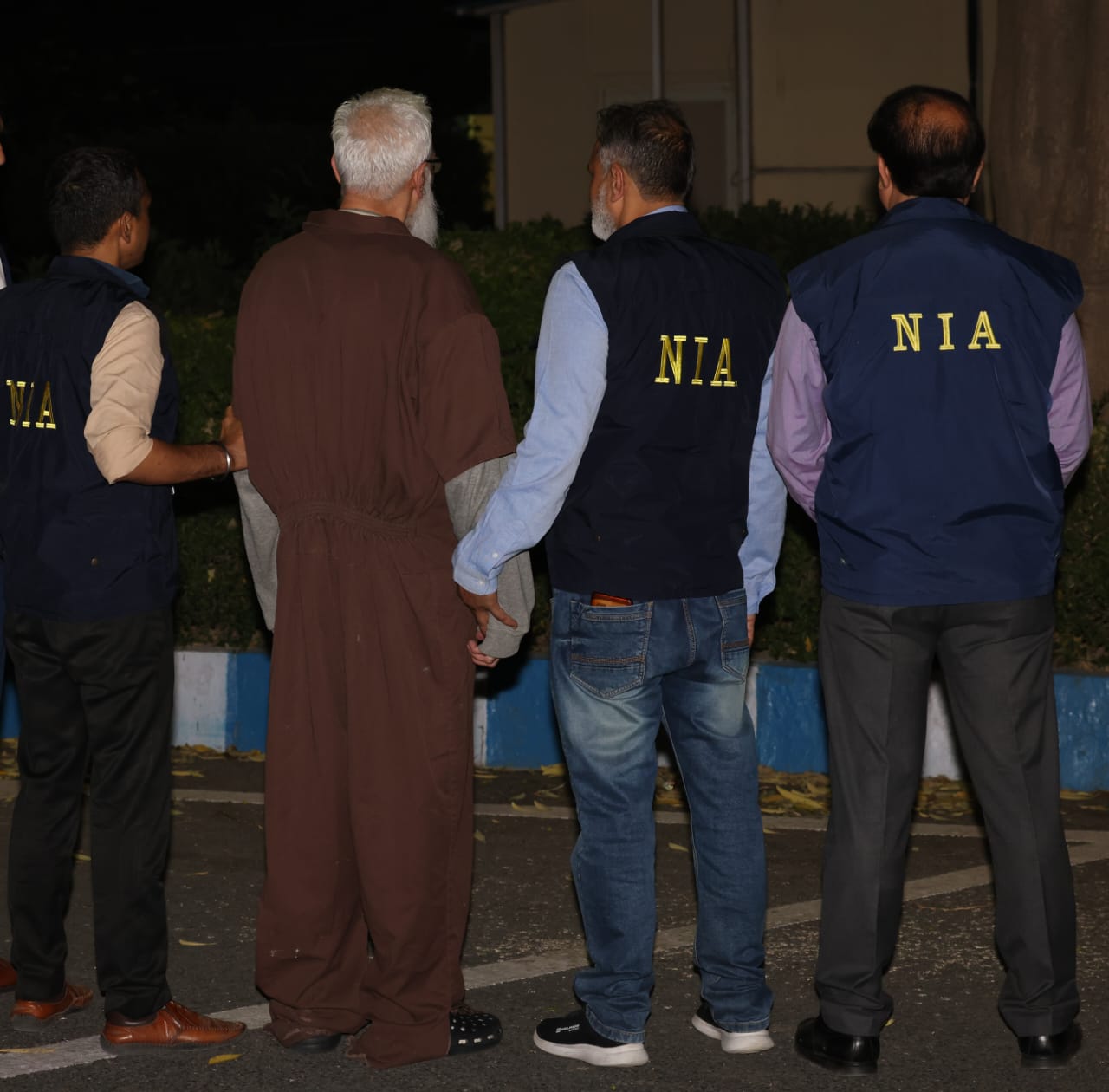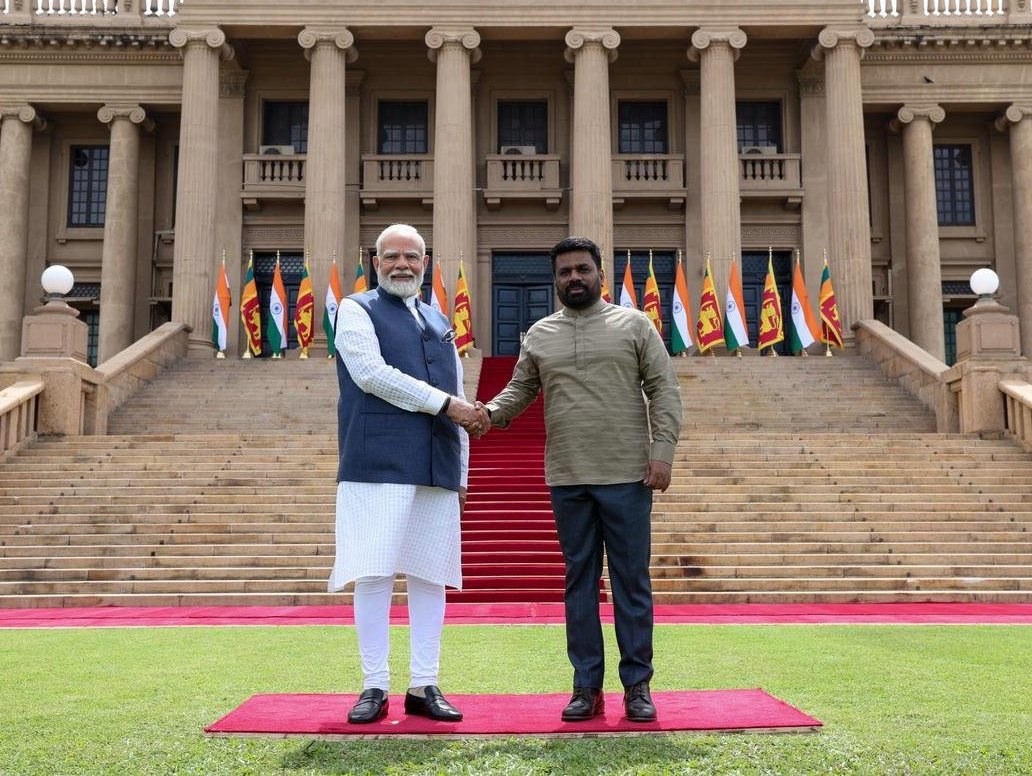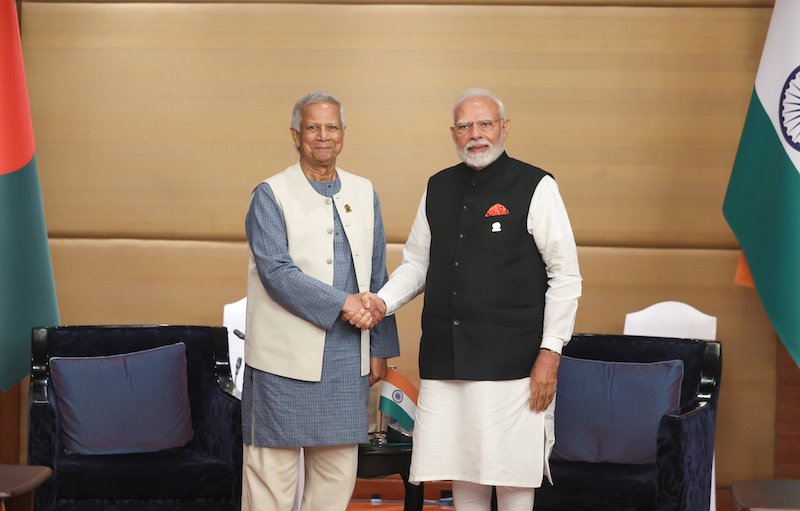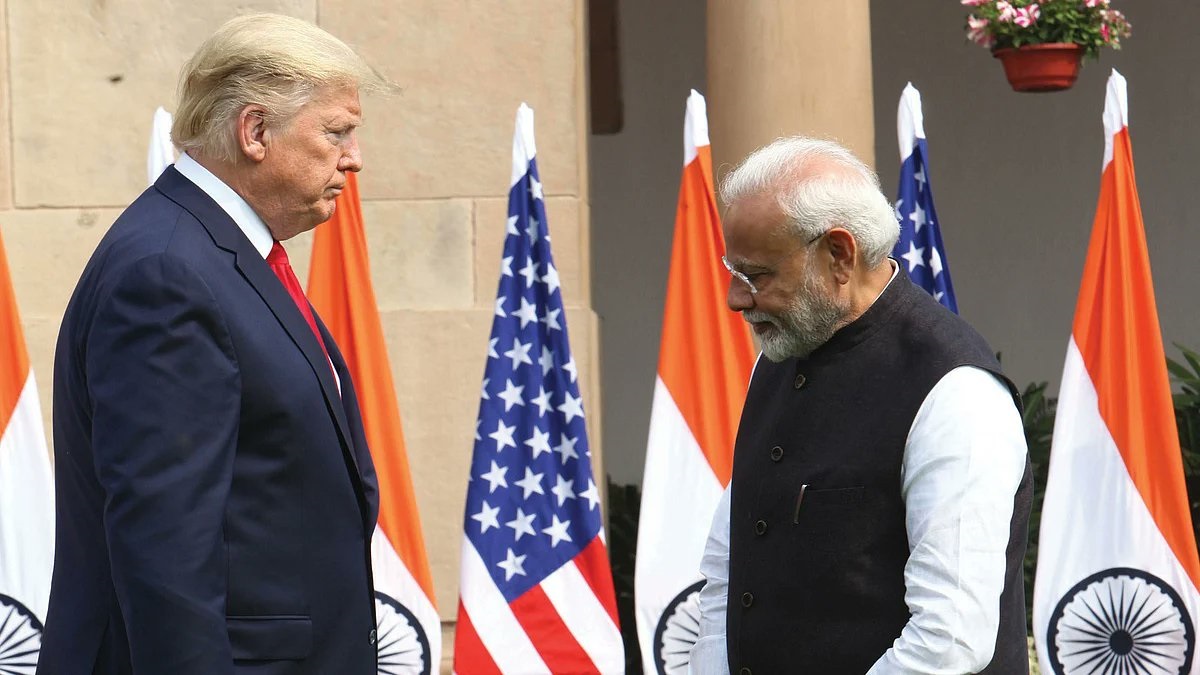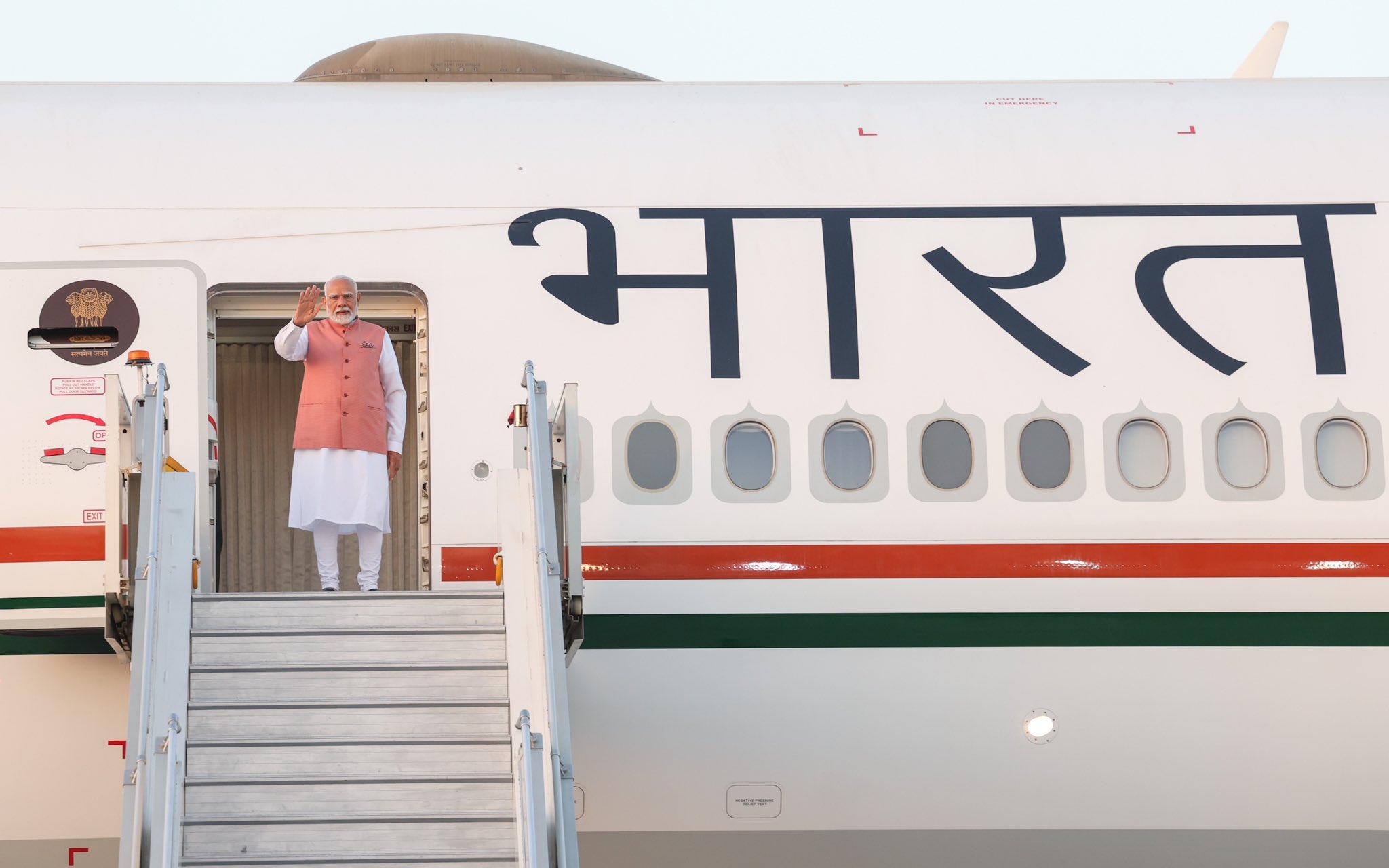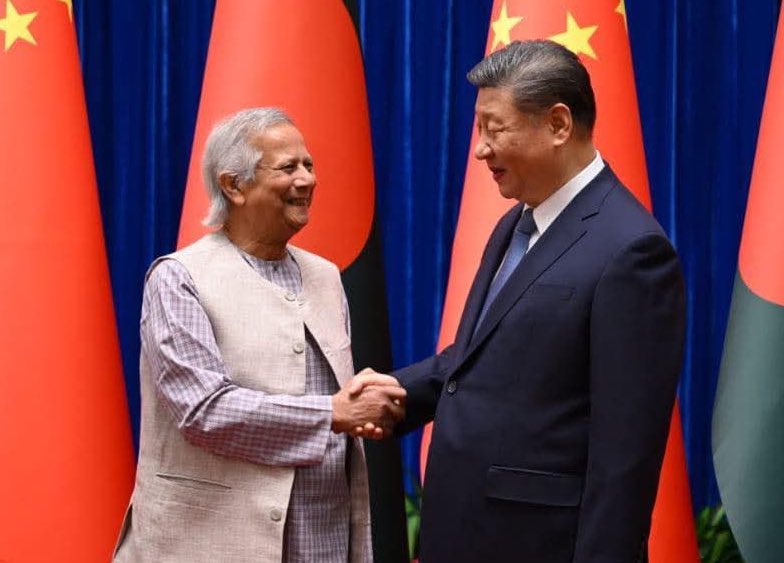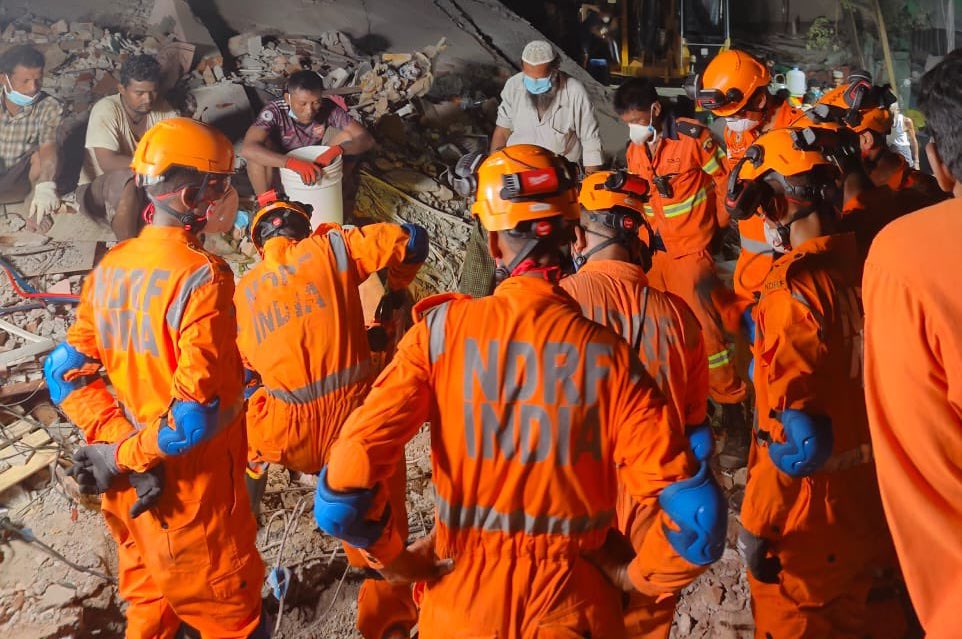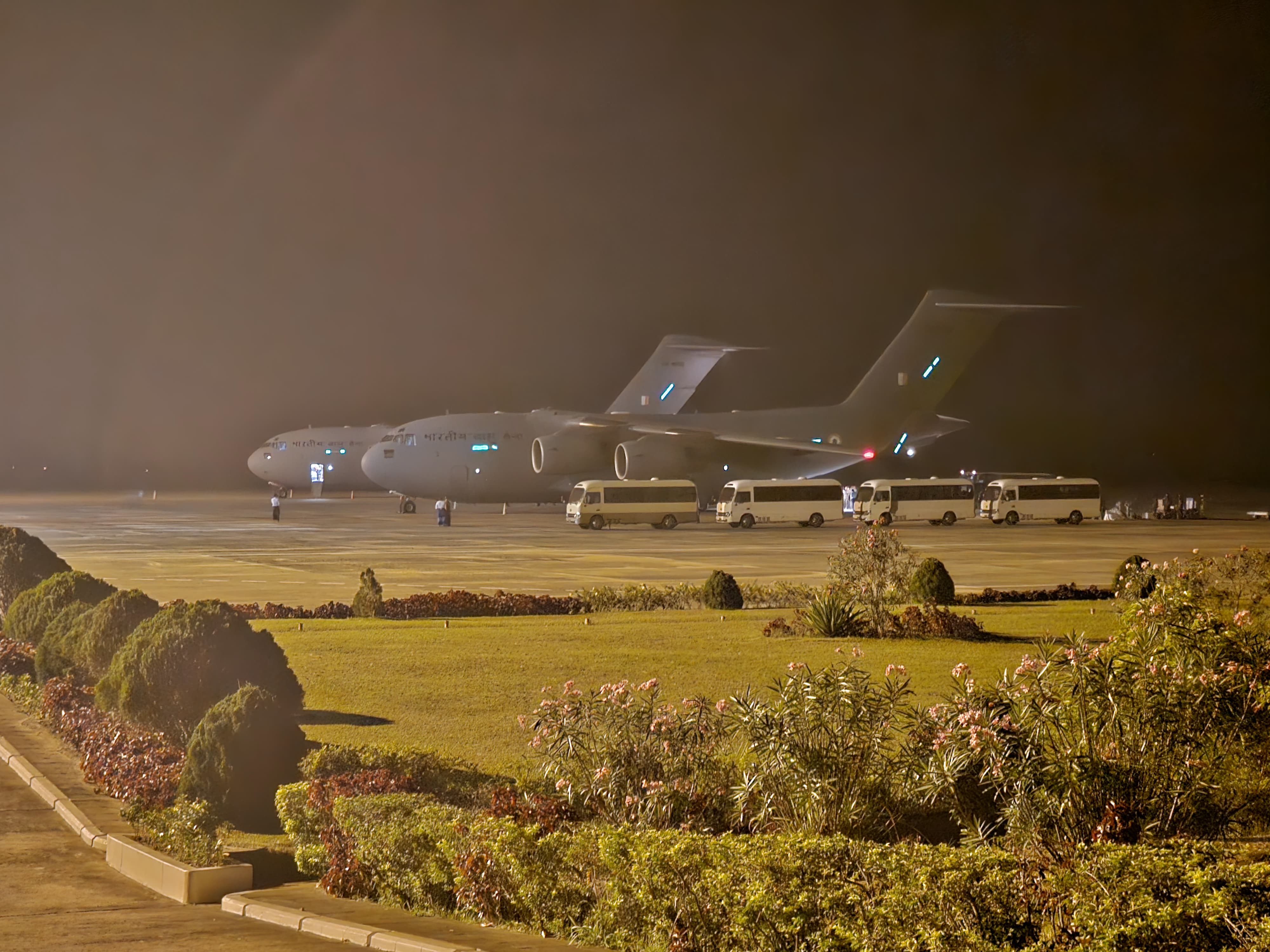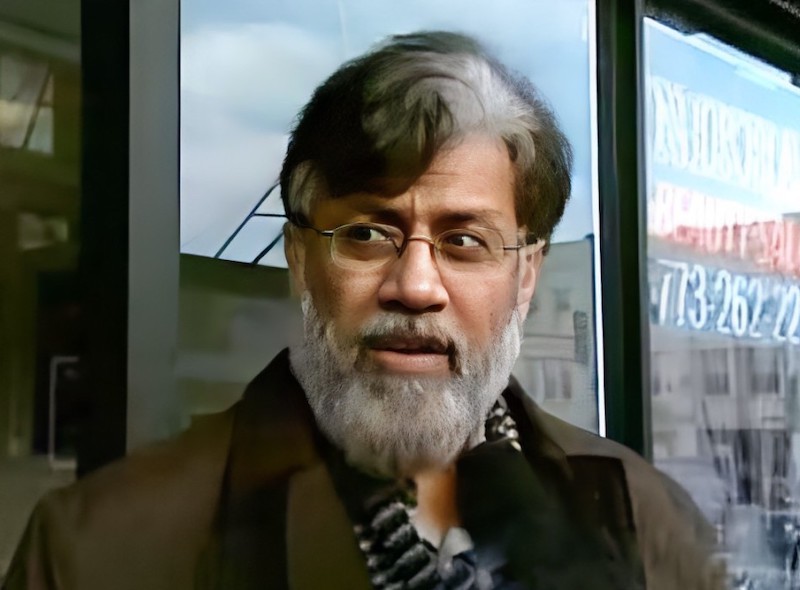 Tahawwur Hussain Rana. (TV screenshot from file.)
Tahawwur Hussain Rana. (TV screenshot from file.)
New Delhi: Tahawwur Hussain Rana, a Pakistani-origin Canadian citizen accused of involvement in the 2008 Mumbai terror attacks, was extradited from the United States to India on Thursday evening. A US military aircraft carrying Rana landed in New Delhi, accompanied by officials from India’s National Investigation Agency (NIA) and the US.
This marks a major step in India’s quest for justice for the victims of the 26/11 attacks, which claimed around 170 lives and injured hundreds.
Rana, now fully grey-haired with a flowing white beard, appeared visibly fatigued as he arrived on Indian soil clad in a brown inmate’s jumpsuit. His extradition culminates years of persistent diplomatic negotiations and legal proceedings by Indian authorities. The US supreme court had dismissed his appeal against extradition earlier this year, which cleared the path for his transfer under the India-US extradition treaty.
 Tahawwur Hussain Rana in National Investigating Agency custody at New Delhi airport. (Photo: NIA/Handout)
Tahawwur Hussain Rana in National Investigating Agency custody at New Delhi airport. (Photo: NIA/Handout)
Rana is accused of aiding Pakistani-American terrorist David Coleman Headley in planning the attacks, including conducting reconnaissance of targets, such as the Taj Mahal Palace Hotel and other iconic locations in Mumbai. India has charged Rana with providing logistical support to Lashkar-e-Taiba (LeT), the Pakistan-based terror group responsible for orchestrating the attacks. A supplementary chargesheet filed by Mumbai Police highlights Rana’s role in securing visas for Headley under false pretences and facilitating reconnaissance missions crucial to the attacks’ execution.
Upon arrival, Rana was immediately taken into custody by the NIA and is likely to face trial under anti-terror laws. He is now lodged in the capital’s Tihar jail and will be shifted to Mumbai, soon after formal legalities are completed, where he will face trial.
In a statement released soon after the plane carrying Rana touched down in Delhi, the NIA said the extradition resulted from close coordination between Indian and American authorities, with the agency working alongside other Indian intelligence agencies, the NSG (National Security Guard), and US officials. It further said Rana faces charges of conspiring with Headley and operatives from designated terror outfits LeT and Harkat-ul-Jihadi Islami (HuJI) in orchestrating the attacks that claimed 166 lives and injured over 238 people.
Efforts to Extradite Tahawwur Rana
New Delhi’s pursuit of Tahawwur Hussain Rana’s extradition has been a lengthy process spanning several years. The process to extradite Rana and Headley was initiated by the Congress-led UPA government headed by the-then prime minister, Manmohan Singh, in 2009 – a year after the 26/11 attacks.
Rana was eventually detained in Los Angeles in 2020 due to his alleged involvement in the attacks. Indian authorities formally requested his extradition under the India-US extradition treaty, which allows for transfer of individuals accused of crimes punishable by imprisonment or death in both countries.
The legal battle intensified when Rana challenged his extradition through multiple appeals. In 2022, a US court temporarily stayed his extradition after he filed a writ of habeas corpus questioning the legality of the process. However, in August 2024, the US court of appeals upheld his extradition, as India Sentinels had reported then, affirming that he could be transferred to India under existing legal frameworks. Subsequently, Rana petitioned the US supreme court for review, but his plea was dismissed in January 2025.
India’s Ministry of External Affairs worked closely with US authorities throughout this period to navigate procedural hurdles and expedite Rana’s transfer. Diplomatic efforts were bolstered by consistent support from the US Department of State, which reiterated its commitment to helping India bring perpetrators of the 26/11 attacks to justice. The final approval came after extensive deliberations between both nations’ legal and diplomatic teams.
Rana’s Alleged Role in 26/11 Attacks
Tahawwur Hussain Rana is accused of playing a major role in planning and facilitating the 26/11 Mumbai terror attacks that left 174 people, including the attackers, dead and over 300 injured. The coordinated assaults targeted prominent locations across Mumbai, including the Taj Mahal Palace Hotel, Oberoi Trident Hotel, Nariman House Jewish Centre, Chhatrapati Shivaji Maharaj Terminus railway station, and Leopold Café. Among those killed were 20 security personnel and 26 foreign nationals.
Rana allegedly assisted David Coleman Headley, a key conspirator who conducted reconnaissance missions across Mumbai between 2007 and 2008 using a visa fraudulently obtained with Rana’s help. Headley testified that Rana provided logistical support by opening an immigration company as a cover for their activities. Investigators also found email communications between Headley and Rana discussing operational details and connections with Pakistani military’s Inter-Services Intelligence (ISI) operatives, like Major Iqbal.
The attackers – 10 members of LeT – were trained extensively in Pakistan before infiltrating Mumbai via sea routes on November 26, 2008. They carried out indiscriminate shootings and bombings during a siege lasting over 60 hours. Nine attackers were killed by Indian security forces during counteroperations, while one attacker, Mohammed Ajmal Amir Kasab, was captured alive. Later, Kasab’s interrogation and probe by Indian intelligence agencies revealed that he was a Pakistani citizen and a resident of Faridkot in the country’s Punjab province.
Kasab’s trial became a landmark case in Indian judicial history, which conclusively proved Pakistan’s hand behind the attacks. He was convicted on charges, including murder and waging war against India, after extensive evidence was presented against him.
On November 21, 2012, Kasab was executed by hanging at Pune’s Yerwada jail following rejection of his mercy petition.
Headley Remains Out of India’s Grasp
David Coleman Headley, born Daood Sayed Gilani in Washington, DC, is a Pakistani-origin American convicted terrorist who played a critical role in planning the 26/11 Mumbai terror attacks. Headley was instrumental in conducting reconnaissance for LeT, visiting Mumbai multiple times between 2005 and 2008 under the guise of a businessman.
He mapped out targets, such as the Taj Mahal Palace Hotel, Oberoi Trident Hotel, and Nariman House, and provided vital intelligence to the ISI, which prepared the LeT to carry out the attacks on November 26, 2008, that lasted for over 60 hours.
Headley was arrested by US authorities in 2009 while planning another terror attack in Copenhagen. In 2010, he pleaded guilty to charges related to the Mumbai attacks and other plots, avoiding extradition to India by agreeing to cooperate with American investigators. His disclosures have implicated the Pakistani military in supporting LeT’s activities through its ISI. He was sentenced to 35 years in prison in January 2013.
Despite his pivotal role, Headley’s extradition has been blocked due to his plea deal with US prosecutors. New Delhi repeatedly sought his extradition, but the agreement between Headley and the US prosecutors ensures he remains in US custody.
This has led to speculation that Headley may have been a CIA asset who turned rogue. His early ties to the US Drug Enforcement Administration (DEA) as an informant against Pakistani drug cartels and subsequent involvement with LeT raise questions about whether American intelligence agencies overlooked his radicalization or leveraged him for covert operations. Critics argue that his cooperation shielded him from harsher penalties or extradition, allowing him to escape full accountability for his actions.
Currently, Headley is serving his long sentence in a US federal prison and doesn’t look like he will ever be extradited to face trial in India.
Nonetheless, Tahawwur Hussain Rana’s successful extradition is widely seen as a beacon of hope for international cooperation in addressing serious transnational crimes, like terrorism. His trial is expected to shed light on critical aspects of planning and execution behind these attacks.
If convicted, which is almost certain given the mountain of evidence against him, Rana could face the death penalty.

